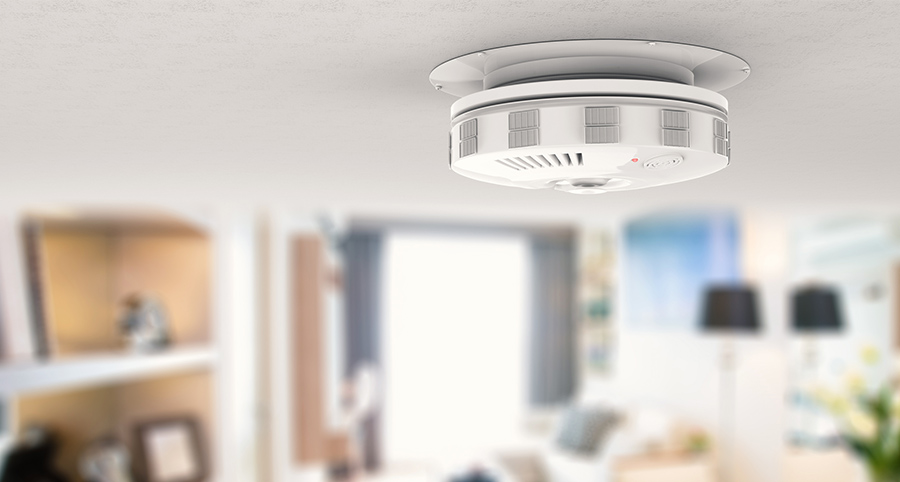Is there a difference between traditional smoke detectors vs. monitored fire alarms in Montgomery?

In the Montgomery smoke detector vs. monitored fire alarm debate, there’s really only one champion. Smoke detectors are a vital first step in guarding your place from emergency situations, but they have some notable limitations. On the other hand, monitored fire alarms have more methods to identify a potentially dangerous situation and can notify help when the unthinkable happens. Linking your fire alarms to a comprehensive smart home also delivers many extra benefits that your common smoke detectors would only dream about.
The drawbacks of ordinary smoke alarms in [[targetlocaion]]
Protecting your home from fire is important, and smoke detectors take on a vital part in safeguarding your family. However, smoke detectors have various shortcomings. For instance, they will only identify smoke, not heat. If there is a fire in your residence, you may not be warned unless the smoke rises to the smoke detector. Although there are some other significant signals of fire -- like a sudden increase in warmth -- if you don’t have smoke, you will fail to get a sounding of your smoke detector.
What’s more, smoke detectors only activate if they encounter ample smoke. If a fire begins slowly, you may not be alerted until the situation is out of hand. Many smoke detectors employ more than one sensor, meaning they will detect smoke from both a blazing inferno and a more gradual burn. If they start beeping, it’s required of the occupant to notify emergency services after safely leaving the residence.
Monitored fire alarms do much more than regular smoke detectors
Although they look like traditional smoke detectors, monitored fire alarms can do much more. When linked to a complete home security installation, they can:
- Discern fire with multi-sensor technology: Comparable to a traditional smoke detector, this monitored alarm will trigger from an active or passive fire. It will resonate a high-decibel warning whenever it perceives a potential disaster.
- Identify fire with a rapid heat surge: A monitored fire alarm may even go off if it senses an unusual heat surge. Many times, heat is noticed before smoke. More means to uncover a fire leads to extra methods to protect your loved ones.
- Notifies trained monitoring agents: Fires will take place whether you are home or away. Either way, your fire alarms will warn your monitoring agents, who can swiftly place a call to the fire department. When every tick of the clock is critical, it's great to know that a trained professional is constantly watching over your home.
- Pairs with home automation: Although the primary task of a fire alarm is to recognize dangerous situations and notify monitoring agents, it can also join forces with other automated components. For example, a triggered alarm can induce your system to engage the exhaust fan to impede the fire or initiate smart light bulbs so you may see the safest path out of the house.
Your monitored fire alarms are an important aspect of a fully equipped smart home
The best way to optimize your fire alarms is to connect them with a Vivint home security system. Speak with a Vivint specialist today and find the perfect smart home for your needs. Diall (334) 378-2456 or send in the form below to take the first step toward a safer property.